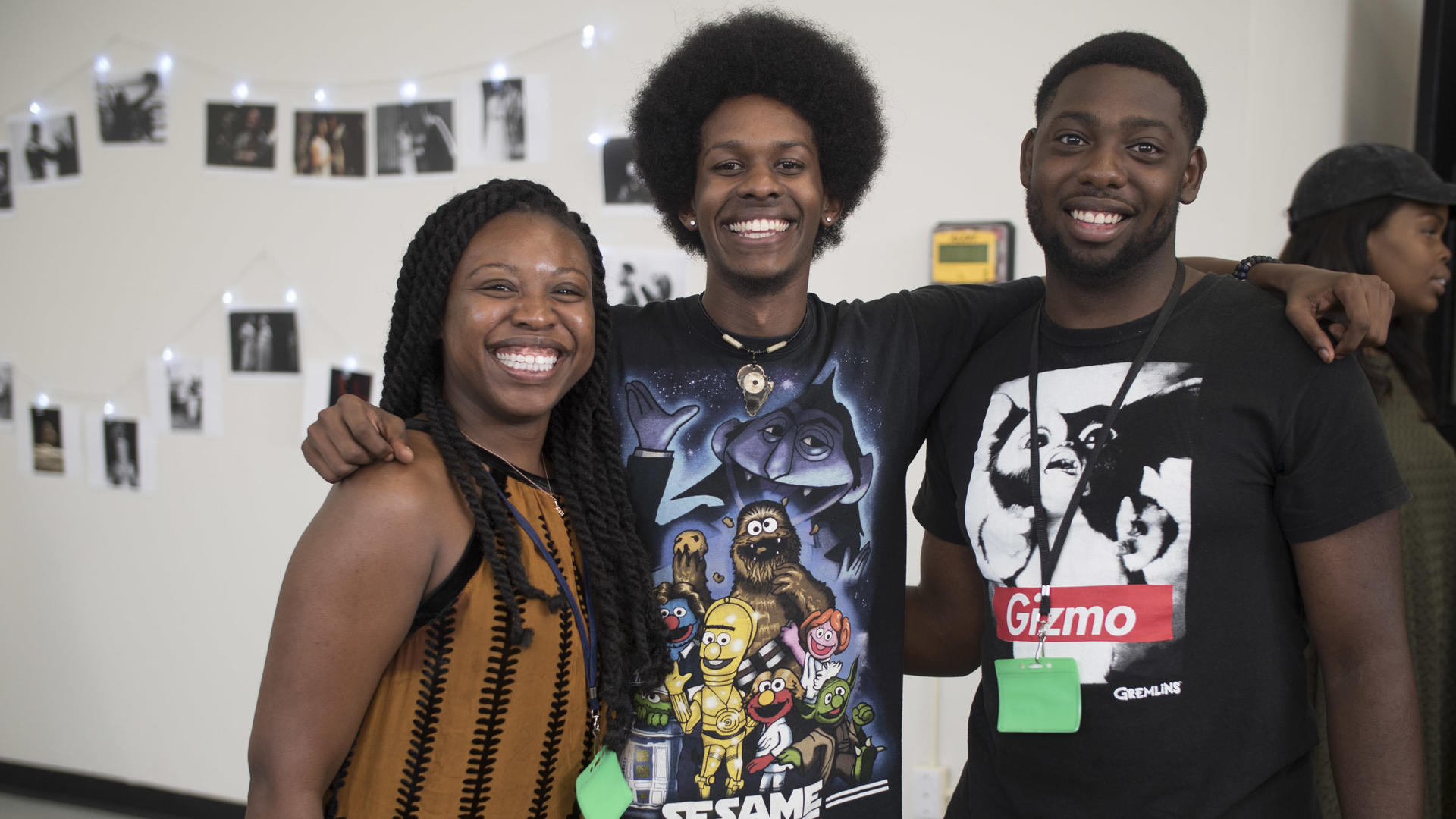
Last January, acting student Brittany Bradford spearheaded HomeBase, a festival of one-act plays written, directed, and performed by black artists. The project, a collaboration with NYU drama students, was a success and when Bradford was looking for ways to carry it forward, drama administrators Richard Feldman and Kathy Hood introduced her to Denise Woods, an alumna of Drama’s Group 8, a former Juilliard and current CalArts faculty member, and a top-end dialect coach. The result of that meeting was Juilliard’s first black Drama alumni gathering, which kicked off the 50th anniversary year of the drama program.
This past March, Denise Woods (Group 8) and I sat down in room 303 and spoke about tradition, legacy, and the importance of having ties to those who have come before us. We connected on the issues that are still present all these years after she studied at Juilliard, but more importantly on how far we have come since then. And we realized that many black drama alumni didn’t know the steps students and faculty were making to positively usher us into the future—and didn’t realize how many current students ached to interact with them.
So we planned. In late August, we invited all of the black drama alumni to a reunion of sorts that Denise called Our Stomping Ground, Our Juilliard. Taking place over four days in late August, it consisted of classes, panels, meals with current students, and, most importantly, lots of talking with one another.
From the breakfast the first day—with all the black men from Group 1 in attendance—to our performance on the final day featuring current students (including the incoming Group 50!), the journey was necessary, joyful, and healing, and the first of what I hope will be many more opportunities to honor those who have made it possible for us to be here today. What follows is excerpted from the welcome letter we sent to all the attendees.
1968 was a year full of change, tragedy, and hope. Both Martin Luther King, Jr. and Bobby Kennedy were assassinated; fists went up in solidarity at the Summer Olympics; and Star Trek featured prime-time TV’s first interracial kiss. Hair opened on Broadway, and a little further uptown, Juilliard opened its doors to its first group of drama students. Fifty years later, we find ourselves—eerily—still in a year full of change, tragedy, and hope. With the events in Charlottesville, and the tepid (to say the least) denouncement from some political leaders, it seems the goals of theater in 1968 and 2018 must be quite similar: to hold a mirror up to society as it stands and to reflect who we are, where we’ve come from, and how we can strive to be better.
In that vein, it is incredibly fitting for us to gather now as an ensemble, for that is what we are, whether we left school after one year in 1971 or graduated with an MFA in 2016. Our journeys have led us all through these halls. Our sweat and tears have been absorbed in the studios, and our biggest successes and most embarrassing failures have seeped into the cracks of the walls to constantly remind us of our humility and individual paths to artistic fulfilment. What sticks with me the most in preliminary conversations Denise and I had when imagining this intensive is the necessity of shared storytelling. As a current student, I can tell you how thirsty we are to be in the midst of those who inspired us to apply to this school in the first place—alumni who became our teachers, our role models, our guides. As an alum herself, Denise has expressed in beautiful detail the importance of truly listening to the narratives of black alumni who went through various programs at Juilliard, perhaps at a time when their voices were stifled and they didn’t feel like they could truly be seen.
That sensation of being seen in one’s infinite glory—of not needing to hide in the shadows because your experience and voice aren’t valued—is a feeling we will constantly have to excavate in ourselves as we work our way through this world. To realize you are not alone and that there is a team of past and current artists who understand and support your journey is a blessing that we all deserve. Perhaps those conversations, partnerships, and support systems can spark theatrical narratives yet to be created: stories this world so desperately needs to make its way from our current position to higher ground. I hope Our Stomping Ground, Our Juilliard can be a small footpath along that journey.
Brittany Bradford is a fourth-year drama MFA student and the artistic director of the HomeBase Theatre Collective. Her studies are funded by a Steinberg Fellowship and a Juilliard Scholarship.